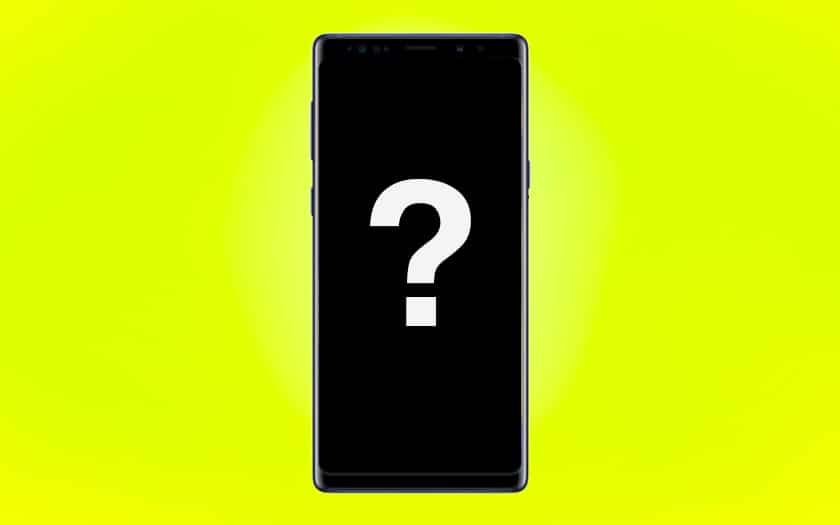
Hard to deny: the Galaxy Note 9 remains one of the best smartphones on the market, even in 2019. This smartphone is resolutely oriented to the professional sector with its stylus, its DeX mode, its technical data sheet based on Snapdragon 845 Exynos 9810 and its price exceeds $ 1,000. Which does not make him immune to bugs. One of them, reports the site TheDroidGuy, prevents the screen to turn back on. The precise description of the problem is as follows: the smartphone is functioning normally, until it locks and the screen goes out. It can not be turned on either via the ON button or the fingerprint sensor. Only a restart will turn on the screen. So what if you are affected by this kind of problem?
Galaxy Note 9: the solution to the problem of the screen that does not turn back on
This bug can actually be caused by a multitude of causes, mainly software - although material causes are not excluded in some cases. To find the source of the problem and stop it, you must follow these steps:
1. Update your Note 9
Sometimes a simple update can end a bug:
Go to Settings> Update
Go to Download and install to manually start the update if available
The problem is not solved? Continue to the next step.
2. Try to restart the smartphone in safe mode
If an application you have recently downloaded is responsible for the problem, it is only with safe mode that you can confirm it. Safe mode prevents the system from launching applications that have not been preinstalled by the manufacturer. So you can see in safe mode if the screen is turned on or off as it should:
Turn off the smartphone completely
Press the ON button and hold down until the Samsung logo appears
Immediately after, release the ON button and press the Volume Down button until the device completes its restart.
Once Safe Mode is visible at the bottom left of the screen, you can release Volume Down.
If it did not work, go to step 3.
3. Clear the cache partition
Sometimes the cache generated by the applications is corrupt, generating these types of bugs. This happens sometimes after a certain period of use. In addition to this problem, a corrupt cache can cause overheating, low battery runtime, or crashes. It is possible to delete the application cache after application. Here we propose you to opt for a faster and more radical solution that will completely erase the contents of the cache partition:
Turn off the smartphone completely
Hold the Volume Up, Bixby and ON buttons pressed until the Android logo appears
Release all buttons
Once in the recovery menu, navigate with the Volume Down button until wipe cache partition
Press the ON button to select
Press Volume Down and then ON to select Yes
Once the partition is cleared, restart the smartphone
If these steps have not worked, there is still the option to do a complete reset.
4. Reset your smartphone completely
This step implies that all data on your smartphones will be erased. To use as a last resort, therefore, once these data have been duly saved:
Turn off the smartphone completely
Hold the Volume Up, Bixby and ON buttons pressed until the Android logo appears
Release all buttons
Once in the recovery menu, navigate with the Volume down button to wipe data / factory reset
Press the ON button to select
Press Volume Down and then ON to select Yes
Restart the smartphone
Normally everything must work. If this is not the case, we have bad news: it is now certain that it is not a software problem ...
5. Contact Samsung for repair
If you have performed steps 1 to 4 without success, it is that your smartphone is the victim of a technical problem or is defective. The only solution is to get in touch with Samsung to schedule a repair.

